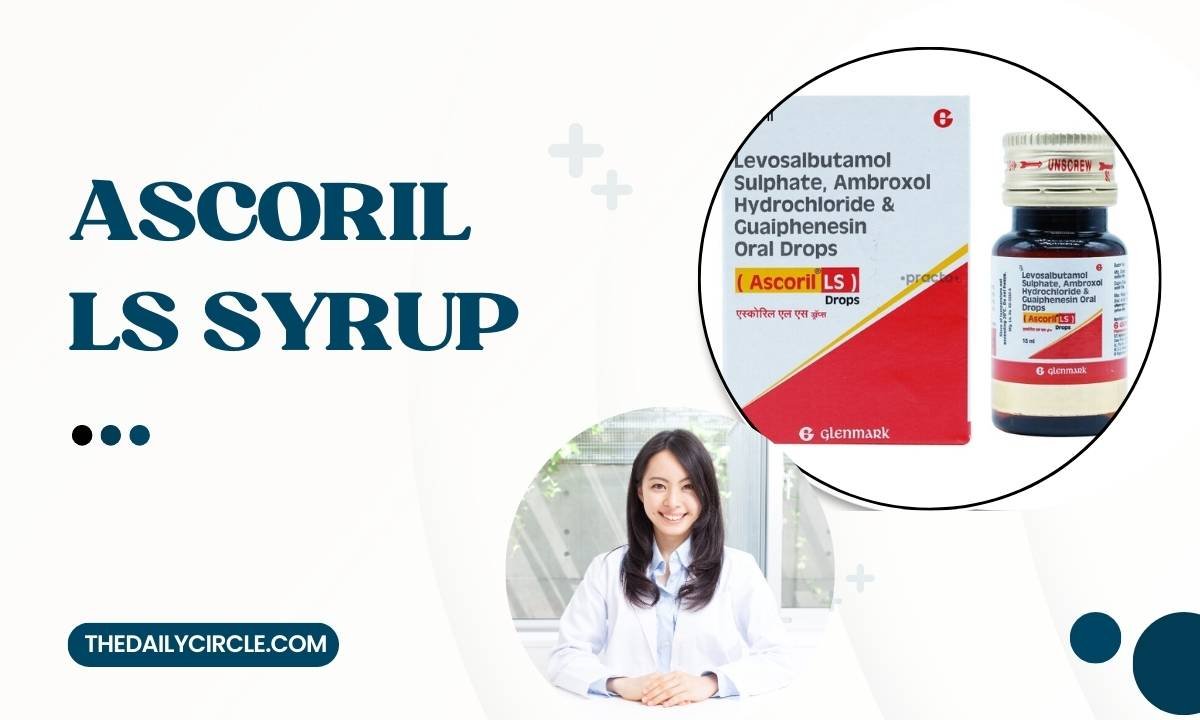If you are one who is suffering from spasm, blockage, or swelling pain then you have arrived at the right place. We are going to talk about the Ascoril LS in this article. In addition, you will learn how the table functions and how to utilize it, as well as any potential negative consequences.
Examine all of the tablet’s features and take your time reading the article.
Know About Ascoril LS Syrup
Ascoril LS Syrup is made from guaifenesin, ambroxol, and levosalbutamol. The material in issue belongs to the family of drugs known as expectorants. The symptoms of asthma attacks and chronic bronchitis, such as swelling, tightness, blockage, and spasms in the lungs, are lessened with syrup. By relaxing the muscles in the airways, the medicine reduces phlegm in the airway and makes mucus evacuation easier. This syrup must be taken exactly as prescribed by your doctor.
How does Ascoril LS Work?
Ascoril Syrup treats cough with mucus by combining three medications: ambroxol, levosalbutamol, and guaifenesin. Ambroxol is a mucolytic, meaning it thins and loosens phlegm to facilitate coughing. Levosalbutamol is a bronchodilator that facilitates airway opening. It works by letting go of tension and opening up the muscles in the airways.
- Overdosage: If syrup is used in excess, serious cardiac and renal problems may arise. Overdosage symptoms include nausea, vomiting, dry mouth, fits or increased heart rate, stomach discomfort, and sleepiness. Hence, you can call your physician or get straight to the closest hospital if you have any of these symptoms.
- Missed dosage: You can take your Cough Syrup as soon as you recall and, if required, skip the subsequent dose if you forget to take it. Take care not to take two doses to compensate for missing one.
Ascoril LS Syrup Uses
Given below is a list of all the Ascoril LS syrup uses:
- Dry Cough: A cough without phlegm or mucus production.
- Infections of the upper respiratory tract: Infections of the throat, nose, and airways.
- Common cold: a viral illness that causes symptoms such as a sore throat, runny nose, and sneezing that affects the nose and throat.
- Allergies: Reactions resulting in symptoms like runny nose, watery eyes, and sneezing to things like pollen, dust mites, or pet dander.
- Congestion: Swelling of the blood vessels causing obstruction or stuffiness in the nose.
- Sneezing: It is the result of inflammation in the nasal passages causing a rapid burst of air through the mouth and nose.
Ascoril Syrup Side Effects
Given below is the list of some common side effects of the Ascoril Syrup:
- Nausea
- Vomiting
- Diarrhea
- Upset Stomach
- Dizziness
- Headache
- RashHives
- Muscle cramp
- Increased heart rate
- Bloating
- Skin rash
- Irregular heartbeat
Ascoril may result in major health issues as well as some very negative side effects. If you are experiencing any of the severe side effects listed above. Therefore, consult your physician if you are experiencing any severe issues.
Is Ascoril LS Safe for Babies?
Yes, children between the ages of two and six are frequently administered Ascoril LS drops. Children ages 2 to 14 are taken Ascoril LS Junior syrup. The dosage will be recommended by your doctor based on the child’s weight and health. Consequently, Babies under the age of two can also get it, although they should use caution.
Conclusion
Ascoril Syrup contains levosalbutamol, guaifenesin, and ambroxol, which work well together to cure coughs that produce mucus. However, it’s crucial to adhere to the suggested dosages exactly to avoid major adverse effects including renal and cardiac issues. Moreover, Always seek the opinion of a medical professional for an accurate diagnosis and suggested course of treatment; your health should come first.
Disclaimer
The content available on the website is only for informational purposes. Regarding any medical issue, diagnosis, or course of treatment, it is always advisable to visit a qualified medical expert. Never disregard your doctor’s advice because of something you saw or read on this page; instead, heed their guidance.
